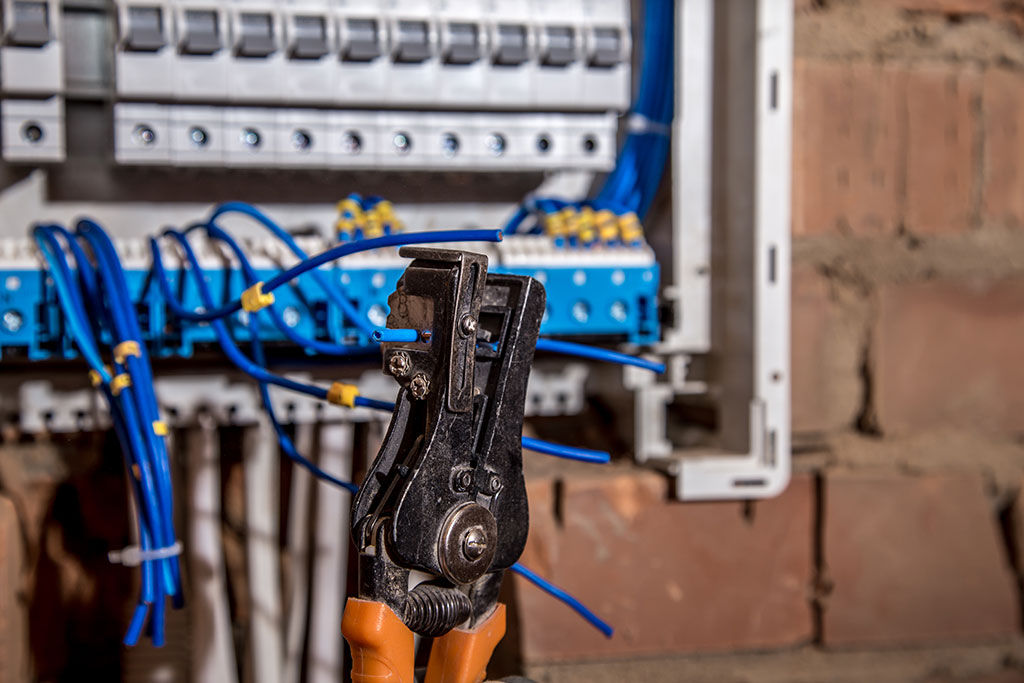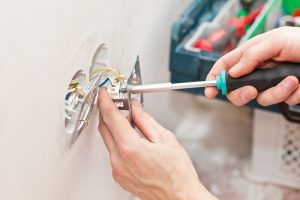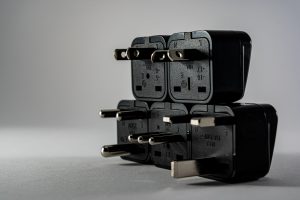As Chesham electricians we often get calls from local property owners wondering whether they need to get their home rewired.
While older electrical installations would have complied with the regulations of their time, not only does wiring wear out, but also outdated wiring won’t have the capacity to handle the increased number of electrical appliances we tend to have in our homes. It’s why old wiring is one of the key causes of electrical fires in properties and why it’s always best to ensure your electrical wiring complies with the latest electrical regulations.
The good news is there are a number of really easy ways of working out if your property needs rewiring, but if you’re still not sure please feel free to contact us and we’ll happily look into it for you.
1. What type of fuse box do you have?
You probably already know that a fuse box controls all the electrical circuits in your home and is the place you should go to in an emergency if you need to turn off your electrical supply. But did you know that it should contain a Residual Current Device (RCD)? The RCD is a safety mechanism which automatically switches the circuit off if a fault is detected and helps prevent electrocution and injury. Older fuse boxes may not have a RCD and are also an indication that the wiring is old.
If this is the case, we would highly recommend that you get an electrical inspection. You might find that it will just be a case of replacing the fuse board, rather than getting the whole house rewired, but it’s better to be safe than sorry.
2. Are your fuses blowing regularly?
Nowadays, we all tend to have a lot of electrical appliances in our homes, but older style fuses simply weren’t designed to cope with this amount of technology. If your fuses are blowing regularly, get a domestic electrical contractor to take a look as you may need to upgrade to a more modern circuit breaker.
3. Do your lights flicker or dim?
Lights flickering doesn’t always mean a faulty light bulb or that a ghostly presence is making itself felt, but rather it’s an indication that there could be something wrong with your home’s wiring.
If a light suddenly brightens or unexpectedly dims, it’s caused by a spike or decline in the voltage and is probably caused by loose wiring or faulty circuits. Get it looked at by a qualified domestic electrician as a priority.
4. Where are you light fittings located?
Believe it or not, where your light fittings are located in your house might be a sign that your house needs rewiring. Why? Because if pendant lights are located near to windows rather than being located in the middle of the room, it suggests your house dates back to the 1950s and 1960s and that the wiring hasn’t been touched since then. If the property had been rewired in the interim, chances are the lights would have been moved across to the centre of the room, which is more in keeping with modern tastes. Not sure? Then give your friendly Chesham electricians a call and we will be able to advise you on whether you need to get your house rewired.
5. Conscious of a lingering burning smell?
If you can smell a burning smell, and know it’s not down to your cooking, then it could be your wiring is shorting. Turn off the power and get it checked out by a qualified domestic electrician as soon as possible.
6. What kind of state are your electrical sockets and switches in?
If you’ve noticed that any of your electrical sockets or switches are discoloured or charred, then get them looked at immediately by a qualified electrician. Brown marks can be the result of loose connections or faulty wiring near the outlet sparking and causing a small fire.
And if you live in an old house, which is still using Bakelite sockets, then the property is probably due for a rewire.
7. Do your circuit breakers trip too frequently?
Circuit breakers are designed to ‘trip’ and cut off the electrical flow when the circuit exceeds the number of amps it’s designed to cope with. But if your circuit breaker starts to trip too frequently, there could well be a serious problem with the wiring.
8. Have you received any electric shocks?
No matter how small, if you get an electric shock when plugging in an electrical appliance into a socket, get it checked urgently. And if you hear strange buzzing from a socket, the same applies.
9. How old is your property?
If you house is more than 30 years old, and you don’t think it’s been rewired, then you may well have outdated cabling. Older cabling won’t comply with modern electrical safety standards and could well be dangerous, so we recommend you get it looked at as soon as possible by an electrical contractor. They will be able to provide comprehensive electrical installation condition reports and tell you if you need a complete rewiring of your home.
And did you know that it’s recommended that your electrical installation is tested every 10 years? Just like an MOT for cars, it’s important to carry out checks on the condition of your electrics regularly, so that any faults can be spotted early on.
Get your electrical wiring checked by the Chesham Electricians who care
If any of the above apply to you, then give us a call and we’ll send round one of our team of electricians to take a look at your wiring. All our team are NICEIC Certified Electricians so you can be confident we work to the highest of standards.
And if you are a landlord of a domestic property in and around Chesham, we offer a whole range of electrical services to ensure all your properties meet all the necessary electrical regulations.
Give us a call today to set up an electrical inspection. At BES Electrical Contractors, we take the safety of all our customers very seriously, so will do everything we can to ensure you and your family are safe.
You May Also Be Interested In:
How Can An Electrical Contractor Help You With Your Home Renovation Project?
Choosing The Right Electrical Service Provider: Our Guide




